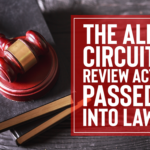Medicare and Medicaid have been with us for half a century at this point, and, despite the rise in conservative politics, the programs have become so entrenched that few, if any, major politicians call for their removal. And, yet, government watchdogs on both sides of the political spectrum agree that the government and taxpayers are the victims of staggering amounts of fraudulent billing each year through Medicare and Medicaid, with one estimate putting the total cost of such fraud at $98 billion annually, or $300 out of each taxpayer’s pocket. Where does this money go? Not towards patient care, but rather to unscrupulous medical providers overcharging the government through practices such upcoding and unbundling. Oftentimes the workers who carry out these practices may not realize that they are illegal, or that they have the potential of collecting large whistleblowing awards from the federal government by reporting the activity. With that in mind, we provide a brief description of the difference between upcoding and unbundling below.
Upcoding
Upcoding is essentially the practice of putting a fraudulent “code” on a claim for Medicare or Medicaid reimbursement which is not the correct code that should be applied to the procedure actually completed, and results in overpayment to the provider.
The way this typically works is that a doctor will see a patient for a certain type of treatment and then order an administrator to bill the government with a different “Evaluation and Management” code (or E&M code) than actually should have applied. The E&M code reflects the complexity and time involved in the medical treatment provided, and so an upcoded E&M code misrepresents the procedure and results in higher billing. Upcoding is a fraudulent act, and if you are aware of it, you should consider reporting the illegal behavior to potentially collect a financial reward for your efforts.
Unbundling
According to the FBI, unbundling is defined as follows: “This is the practice of submitting bills in a fragmented fashion in order to maximize the reimbursement for various tests or procedures that are required to be billed together at a reduced cost. For example, clinical laboratory tests may be ordered individually, or in a ‘panel’ (i.e., a lipid panel, an arthritis panel, a hepatitis panel). Billing tests within each panel as though they were done individually on subsequent days is an example of unbundling.”
One way to think about is this is to make an analogy to a cosmetics kit advertised for sale for $99, which includes lipstick, eyeliner, moisturizing cream, and so on. You agree to buy the kit, but then are billed for each cosmetic item separately, adding up to $179. You would notice this as a consumer, but it is more difficult for government authorities to always detect unbundling and so they realize on potential whistleblowers to bring this fraudulent practice to light.
Work with Experienced Whistleblowing Attorneys You Can Trust
At Kreindler & Associates, we understand that the decision to become a whistleblower is not an easy one. The government relies on courageous insiders like you to come forward with information that can stop harmful Medicare fraud. Our experienced healthcare fraud attorneys will work with you every step of the way to determine your appropriate course of action, protect you from retaliation, and collect your much-deserved reward. If you suspect that someone is committing Medicare fraud through upcoding, unbundling, or some other illegal activity, contact us today for an evaluation of your allegations.




